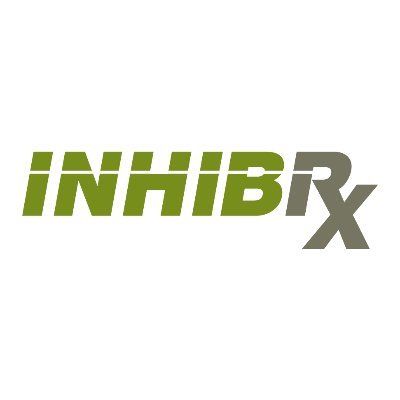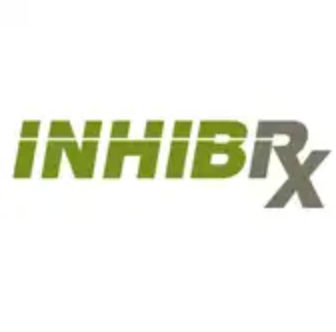预约演示
更新于:2025-12-06

Elpiscience Biopharma Ltd.
更新于:2025-12-06
概览
标签
肿瘤
消化系统疾病
免疫系统疾病
抗体
双特异性抗体
单克隆抗体
疾病领域得分
一眼洞穿机构专注的疾病领域
暂无数据
技术平台
公司药物应用最多的技术
暂无数据
靶点
公司最常开发的靶点
暂无数据
| 排名前五的药物类型 | 数量 |
|---|---|
| 双特异性抗体 | 5 |
| 单克隆抗体 | 3 |
| 抗体 | 2 |
| 抗体融合蛋白 | 2 |
| 生物药 | 1 |
关联
15
项与 科望(上海)生物医药科技有限公司 相关的药物靶点 |
作用机制 OX40激动剂 |
在研适应症 |
非在研适应症- |
最高研发阶段临床2/3期 |
首次获批国家/地区- |
首次获批日期- |
作用机制 DLL4抑制剂 [+1] |
原研机构 |
最高研发阶段临床2/3期 |
首次获批国家/地区- |
首次获批日期- |
作用机制 CD39抑制剂 [+1] |
在研机构 |
原研机构 |
非在研适应症- |
最高研发阶段临床2期 |
首次获批国家/地区- |
首次获批日期- |
7
项与 科望(上海)生物医药科技有限公司 相关的临床试验NCT06007482
An Open-Label, Multicenter, First-in-Human, Phase 1 Study of ES009 in Subjects With Locally Advanced or Metastatic Solid Tumors
The goal of this clinical trial is to evaluate the safety, tolerability, pharmacokinetics, pharmacodynamics, and preliminary clinical activity of ES009 administered intravenously to subjects with advanced solid tumors.
开始日期2023-09-26 |
申办/合作机构 |
NCT05381935
An Open-Label, Multicenter, First-in-Human, Dose Escalation and Expansion, Phase 1 Study of ES014 in Subjects With Locally Advanced or Metastatic Solid Tumors
The purpose of this first-in-human, open-label, multicenter, non-randomized study designed to determine the maximum tolerated dose (MTD)/maximum administered dose (MAD), optimal biological dose (OBD), and recommended phase 2 dose (RP2D) of ES014 by evaluating the safety, tolerability, PK, pharmacodynamics, and preliminary clinical activity of ES014 administered intravenously to subjects with advanced solid tumors.
开始日期2023-04-21 |
申办/合作机构 |
NCT05075564
An Open-Label, Multicenter, First-in-Human, Dose-Escalation, Phase 1 Study of ES002023 in Patients With Locally Advanced or Metastatic Solid Tumors
The purpose of this first-in-human, open-label, multicenter, non-randomized study is to investigate the safety, tolerability, pharmacokinetics (PK), pharmacodynamics, and preliminary clinical activity of ES002023 in patients with advanced solid tumors that are relapsed or refractory to standard therapies.
开始日期2021-12-23 |
申办/合作机构 |
100 项与 科望(上海)生物医药科技有限公司 相关的临床结果
登录后查看更多信息
0 项与 科望(上海)生物医药科技有限公司 相关的专利(医药)
登录后查看更多信息
2
项与 科望(上海)生物医药科技有限公司 相关的文献(医药)2025-01-01·PROTEIN EXPRESSION AND PURIFICATION
Partition coefficient screening – An effective approach for finding the best conditions for byproduct removal as demonstrated by a bispecific antibody purification case
Article
作者: Chen, Wei ; Wang, Peter K ; Wan, Yan ; Zhang, Ting ; Wang, Peter K. ; Liao, Chien-Chun ; Li, Yifeng
In recombinant protein purification, differences in isoelectric point (pI)/surface charge and hydrophobicity between the product and byproducts generally form the basis for separation. For bispecific antibodies (bsAbs), in many cases the physicochemical difference between product and byproducts is subtle, making byproduct removal considerably challenging. In a previous report, with a bsAb case study, we showed that partition coefficient (Kp) screening for the product and byproducts under various conditions facilitated finding conditions under which effective separation of two difficult-to-remove byproducts was achieved by anion exchange (AEX) chromatography. In the current work, as a follow-up study, we demonstrated that the same approach enabled identification of conditions allowing equally good byproduct removal by mixed-mode chromatography with remarkably improved yield. Results from the current and previous studies proved that separation factor determination based on Kp screening for product and byproduct is an effective approach for finding conditions enabling efficient and maximum byproduct removal, especially in challenging cases.
2023-10-01·Protein expression and purification
Resin and loading condition screening for effective and robust byproducts removal by anion exchange chromatography: A case study
Article
作者: Chen, Wei ; Wan, Yan ; Wang, Peter K ; Li, Yifeng ; Liao, Chien-Chun
In downstream processing of protein therapeutics, ion exchange (IEX) chromatography is a powerful tool for removing byproducts whose isoelectric point (pI) is appreciably different from that of the product. Although in theory for a given case cation exchange (CEX) and anion exchange (AEX) chromatography should be equally effective for separation, in reality they may show different effectiveness. In the current work, with a case study, we demonstrated that AEX is more effective than CEX chromatography at removing the associated byproducts. In addition, we screened AEX resins and loading conditions to achieve best separation. Finally, we demonstrated that effective separation was achieved with the selected resin/condition, and chromatography performance was comparable between runs conducted at low and high load densities, suggesting that the developed process was relatively robust. The procedure described in this work can be used as a general approach for selecting resin and loading condition that allow for effective and robust removal of byproduct that binds weaker than the product to the selected type of column.
2,113
项与 科望(上海)生物医药科技有限公司 相关的新闻(医药)2025-12-05
▎Armstrong2025年12月5日,科伦博泰TROP2 ADC芦康沙妥珠单抗(sac-TMT)联合奥希替尼或sac-TMT单药新辅助治疗EGFR突变非小细胞肺癌的II期临床试验(SKB264-II-18)申请获得NMPA的默示许可,即将进入临床阶段。作为科伦博泰依托国际领先的ADC及新型DC技术开发平台OptiDC™打造的标杆产品, sac-TMT在分子设计上采用了独特的差异化设计。该药物由高亲和力TROP2靶向抗体为载体,通过稳定性优异的新型连接子与公司自主研发的TOPO1抑制剂贝洛替康衍生物KL610023偶联,药物抗体比率(DAR)平均值高达7.4。目前,sac-TMT已经获批用于治疗EGFR突变非小细胞肺癌及三阴性乳腺癌,其中在TKI耐药EGFR突变非小细胞肺癌人群中实现了PFS和OS的双重获益,这是全球首个对比含铂双药化疗显示出OS获益的单药疗法,并实现了对TKI耐药后NSCLC人群的全线覆盖。此外,其用于治疗HR+/HER2-乳腺癌适应症也已递交上市申请。自2000年以来,晚期非小细胞肺癌的新药研发取得了诸多进展,但对于早期非小细胞肺癌的患者的新药研发进展寥寥。近几年来,免疫治疗针对驱动基因阴性NSCLC、靶向治疗EGFR-TKI针对EGFR突变NSCLC均积极向早期辅助治疗或新辅助治疗拓展。目前,基于ADAURA研究结果,奥希替尼已成为早期EGFR突变NSCLC患者术后辅助治疗的标准方案;随后在NeoADAURA III期临床中,奥希替尼联合或不联合化疗新辅助治疗EGFR突变NSCLC已取得阳性结果。此次sac-TMT+奥希替尼联合新辅助治疗EGFR突变NSCLC获批临床,意味着sac-TMT已拓展至早期场景,有望系统性地取代化疗。围绕sac-TMT+奥希替尼联合治疗策略,科伦博泰已于2024年11月启动一项III期临床试验SKB264-III-15,试验设计了“sac-TMT+奥希替尼”头对头奥希替尼单药一线治疗EGFR突变非鳞状NSCLC,该研究正在稳步推进中。总结作为全球首款获批治疗肺癌的TROP2 ADC,sac-TMT已先后拿下EGFR突变NSCLC的三线治疗和二线治疗,但其的潜力绝不局限于后线。目前,科伦博泰正携手默沙东布局sac-TMT多项NSCLC一线治疗的临床研究,并将联合策略拓展至辅助、新辅助等更早期治疗场景——如sac-TMT+ K药辅助治疗术后未达到病理完全缓解NSCLC的TroFuse-019研究,以及这次获批临床的sac-TMT+奥希替尼新辅助治疗EGFR突变NSCLC的SKB264-II-18研究。若这两项研究能率先验证临床获益,将有望革新NSCLC辅助治疗的标准治疗模式,也意味着sac-TMT朝着“覆盖肺癌完整治疗周期”的目标迈进了关键一步。Armstrong技术全梳理系列GPRC5D靶点全梳理;CD40靶点全梳理;CD47靶点全梳理;补体靶向药物技术全梳理;补体药物:眼科治疗的重要方向;Claudin 6靶点全梳理;Claudin 18.2靶点全梳理;靶点冷暖,行业自知;中国大分子新药研发格局;被炮轰的“me too”;佐剂百年史;胰岛素百年传奇;CUSBEA:风雨四十载;中国新药研发的焦虑;中国生物医药企业的研发竞争;中国双抗竞争格局;中国ADC竞争格局;中国双抗技术全梳理;中国ADC技术全梳理;Ambrx技术全梳理;Vir Biotech技术全梳理;Immune-Onc技术全梳理;亘喜生物技术全梳理;康哲药业技术全梳理;科济药业技术全梳理;恺佧生物技术全梳理;同宜医药技术全梳理;百奥赛图技术全梳理;腾盛博药技术全梳理;创胜集团技术全梳理;永泰生物技术全梳理;中国抗体技术全梳理;德琪医药技术全梳理;德琪医药技术全梳理2.0;和铂医药技术全梳理;荣昌生物技术全梳理;再鼎医药技术全梳理;药明生物技术全梳理;恒瑞医药技术全梳理;豪森药业技术全梳理;正大天晴技术全梳理;吉凯基因技术全梳理;基石药业技术全梳理;百济神州技术全梳理;百济神州技术全梳理第2版;信达生物技术全梳理;信达生物技术全梳理第2版;中山康方技术全梳理;复宏汉霖技术全梳理;先声药业技术全梳理;君实生物技术全梳理;嘉和生物技术全梳理;志道生物技术全梳理;道尔生物技术全梳理;尚健生物技术全梳理;康宁杰瑞技术全梳理;科望医药技术全梳理;岸迈生物技术全梳理;礼进生物技术全梳理;康桥资本技术全梳理;余国良的抗体药布局;荃信生物技术全梳理;安源医药技术全梳理;三生国健技术全梳理;仁会生物技术全梳理;乐普生物技术全梳理;同润生物技术全梳理;宜明昂科技术全梳理;派格生物技术全梳理;迈威生物技术全梳理;Momenta技术全梳理;NGM技术全梳理;普米斯生物技术全梳理;普米斯生物技术全梳理2.0;三叶草生物技术全梳理;贝达药业抗体药全梳理;泽璟制药抗体药全梳理;恒瑞医药抗体药全梳理;齐鲁制药抗体药全梳理;石药集团抗体药全梳理;豪森药业抗体药全梳理;华海药业抗体药全梳理;科伦药业抗体药全梳理;百奥泰技术全梳理;凡恩世技术全梳理。
2025-12-05
·医药笔记
▎Armstrong
2025年12月4日,映恩生物在Clinicaltrials.gov网站上注册了CDH17 ADC新药DB-1324治疗晚期胃肠道肿瘤的美国1/2期临床试验。
该1/2期临床试验计划入组127例晚期胃肠道肿瘤患者。
DB-1324为映恩生物基于DITAC技术平台构建的一款CDH17 ADC新药。
总结
中国为胃肠道肿瘤高发国家,相关靶点的ADC竞争尤为激烈,从Claudin18.2到CDH17,不断再现这种局面。目前已经进入临床获申报IND的CDH17 ADC包括普中发现的AMT-676、翰森制药的HS-20110、康诺亚的CM518D1、宜联生物的YL217、乐普生物的MRG007、先声药业的SIM0609、华东医药的HDM2017、迈威生物的7MW4911、礼新医药的LM-350、映恩生物的DB-1324等。海外BD方面,乐普生物MRG007以12亿美元授权给Arrivent、翰森制药HS-20110以15亿美元授权给罗氏,映恩生物DB-1324以10亿美元授权给葛兰素史克。
Armstrong技术全梳理系列
GPRC5D靶点全梳理;
CD40靶点全梳理;
CD47靶点全梳理;
补体靶向药物技术全梳理;
补体药物:眼科治疗的重要方向;
Claudin 6靶点全梳理;
Claudin 18.2靶点全梳理;
靶点冷暖,行业自知;
中国大分子新药研发格局;
被炮轰的“me too”;
佐剂百年史;
胰岛素百年传奇;
CUSBEA:风雨四十载;
中国新药研发的焦虑;
中国生物医药企业的研发竞争;
中国双抗竞争格局;
中国ADC竞争格局;
中国双抗技术全梳理;
中国ADC技术全梳理;
Ambrx技术全梳理;
Vir Biotech技术全梳理;
Immune-Onc技术全梳理;
亘喜生物技术全梳理;
康哲药业技术全梳理;
科济药业技术全梳理;
恺佧生物技术全梳理;
同宜医药技术全梳理;
百奥赛图技术全梳理;
腾盛博药技术全梳理;
创胜集团技术全梳理;
永泰生物技术全梳理;
中国抗体技术全梳理;
德琪医药技术全梳理;
德琪医药技术全梳理2.0;
和铂医药技术全梳理;
荣昌生物技术全梳理;
再鼎医药技术全梳理;
药明生物技术全梳理;
恒瑞医药技术全梳理;
豪森药业技术全梳理;
正大天晴技术全梳理;
吉凯基因技术全梳理;
基石药业技术全梳理;
百济神州技术全梳理;
百济神州技术全梳理第2版;
信达生物技术全梳理;
信达生物技术全梳理第2版;
中山康方技术全梳理;
复宏汉霖技术全梳理;
先声药业技术全梳理;
君实生物技术全梳理;
嘉和生物技术全梳理;
志道生物技术全梳理;
道尔生物技术全梳理;
尚健生物技术全梳理;
康宁杰瑞技术全梳理;
科望医药技术全梳理;
岸迈生物技术全梳理;
礼进生物技术全梳理;
康桥资本技术全梳理;
余国良的抗体药布局;
荃信生物技术全梳理;
安源医药技术全梳理;
三生国健技术全梳理;
仁会生物技术全梳理;
乐普生物技术全梳理;
同润生物技术全梳理;
宜明昂科技术全梳理;
派格生物技术全梳理;
迈威生物技术全梳理;
Momenta技术全梳理;
NGM技术全梳理;
普米斯生物技术全梳理;
普米斯生物技术全梳理2.0;
三叶草生物技术全梳理;
贝达药业抗体药全梳理;
泽璟制药抗体药全梳理;
恒瑞医药抗体药全梳理;
齐鲁制药抗体药全梳理;
石药集团抗体药全梳理;
豪森药业抗体药全梳理;
华海药业抗体药全梳理;
科伦药业抗体药全梳理;
百奥泰技术全梳理;
凡恩世技术全梳理。
抗体药物偶联物临床申请申请上市
2025-12-05
·医药笔记
▎Armstrong
2025 12月5-7日,欧洲肿瘤内科学会亚洲年会(ESMO-Asia)在新加坡隆重举行,映恩生物以口头报告形式公布了B7H3 ADC新药DB-1311/BNT324,其在晚期宫颈癌(CC)及铂耐药复发性卵巢癌(PROC)患者中的最新临床研究数据。结果显示,DB-1311/BNT324在经多线治疗的晚期妇科肿瘤患者中表现出令人鼓舞的抗肿瘤活性与可管理的安全性特征。
此次报告的数据来源于一项全球多中心I/II期临床研究(NCT05914116)。在纳入分析的铂耐药卵巢癌(PROC)患者中,DB-1311/BNT324(9 mg/kg)展现出优异的初步疗效。在12例疗效可评估患者中,经确认的客观缓解率(cORR)达到58.3%,疾病控制率(DCR)为75.0%,中位无进展生存期(PFS)为8.2个月,6个月PFS率高达81.8%。同时,在30例疗效可评估的晚期宫颈癌患者中,cORR为33.3%,DCR达86.7%,中位PFS为7.0个月,印证了其在妇科肿瘤领域的广泛治疗潜力。截至2025年11月21日的最新数据,mDOR为8.3个月。
药物的安全性与既往报道一致,整体可控可管理。最常见的治疗相关不良事件为恶心及血液学事件,主要为1-2级;未发生导致死亡的治疗相关事件。
基于这些积极数据,DB-1311的临床开发计划正在积极推进中。目前,一个旨在优化DB-1311单药给药剂量的扩展正在进行中,在广泛人群生成的数据也将为DB-1311和BNT327(PD-L1/VEGF双抗)的联合疗法开发提供关键依据。一项评估上述联合疗法的II期临床研究(NCT06953089)也已启动,正在招募宫颈癌及PROC患者,以进一步探索该组合在妇科肿瘤中的治疗潜力。
关于映恩生物
映恩生物是一家临床阶段的创新生物药企,专注于为癌症和自身免疫性疾病患者研发新一代抗体偶联药物(ADC)。公司已成功构建了多个具有全球知识产权的新一代ADC技术平台。基于对疾病生物学机制的深入研究和探索,映恩生物拥有丰富的临床ADC研发管线,并在超过20个国家开展多个全球多中心临床试验,入组超过2,700名患者。同时,映恩生物与全球制药公司和顶尖创新药企达成多项海外授权合作。作为全球ADC创新引擎,映恩生物持续开发下一代新型ADC,包括双抗ADC、全新机制载荷ADC和自免ADC。
Armstrong技术全梳理系列
GPRC5D靶点全梳理;
CD40靶点全梳理;
CD47靶点全梳理;
补体靶向药物技术全梳理;
补体药物:眼科治疗的重要方向;
Claudin 6靶点全梳理;
Claudin 18.2靶点全梳理;
靶点冷暖,行业自知;
中国大分子新药研发格局;
被炮轰的“me too”;
佐剂百年史;
胰岛素百年传奇;
CUSBEA:风雨四十载;
中国新药研发的焦虑;
中国生物医药企业的研发竞争;
中国双抗竞争格局;
中国ADC竞争格局;
中国双抗技术全梳理;
中国ADC技术全梳理;
Ambrx技术全梳理;
Vir Biotech技术全梳理;
Immune-Onc技术全梳理;
亘喜生物技术全梳理;
康哲药业技术全梳理;
科济药业技术全梳理;
恺佧生物技术全梳理;
同宜医药技术全梳理;
百奥赛图技术全梳理;
腾盛博药技术全梳理;
创胜集团技术全梳理;
永泰生物技术全梳理;
中国抗体技术全梳理;
德琪医药技术全梳理;
德琪医药技术全梳理2.0;
和铂医药技术全梳理;
荣昌生物技术全梳理;
再鼎医药技术全梳理;
药明生物技术全梳理;
恒瑞医药技术全梳理;
豪森药业技术全梳理;
正大天晴技术全梳理;
吉凯基因技术全梳理;
基石药业技术全梳理;
百济神州技术全梳理;
百济神州技术全梳理第2版;
信达生物技术全梳理;
信达生物技术全梳理第2版;
中山康方技术全梳理;
复宏汉霖技术全梳理;
先声药业技术全梳理;
君实生物技术全梳理;
嘉和生物技术全梳理;
志道生物技术全梳理;
道尔生物技术全梳理;
尚健生物技术全梳理;
康宁杰瑞技术全梳理;
科望医药技术全梳理;
岸迈生物技术全梳理;
礼进生物技术全梳理;
康桥资本技术全梳理;
余国良的抗体药布局;
荃信生物技术全梳理;
安源医药技术全梳理;
三生国健技术全梳理;
仁会生物技术全梳理;
乐普生物技术全梳理;
同润生物技术全梳理;
宜明昂科技术全梳理;
派格生物技术全梳理;
迈威生物技术全梳理;
Momenta技术全梳理;
NGM技术全梳理;
普米斯生物技术全梳理;
普米斯生物技术全梳理2.0;
三叶草生物技术全梳理;
贝达药业抗体药全梳理;
泽璟制药抗体药全梳理;
恒瑞医药抗体药全梳理;
齐鲁制药抗体药全梳理;
石药集团抗体药全梳理;
豪森药业抗体药全梳理;
华海药业抗体药全梳理;
科伦药业抗体药全梳理;
百奥泰技术全梳理;
凡恩世技术全梳理。
100 项与 科望(上海)生物医药科技有限公司 相关的药物交易
登录后查看更多信息
100 项与 科望(上海)生物医药科技有限公司 相关的转化医学
登录后查看更多信息
组织架构
使用我们的机构树数据加速您的研究。
登录
或

管线布局
2026年02月28日管线快照
管线布局中药物为当前组织机构及其子机构作为药物机构进行统计,早期临床1期并入临床1期,临床1/2期并入临床2期,临床2/3期并入临床3期
药物发现
3
8
临床前
临床1期
2
2
临床2期
其他
14
登录后查看更多信息
当前项目
| 药物(靶点) | 适应症 | 全球最高研发状态 |
|---|---|---|
Tovecimig ( DLL4 x VEGF-A ) | 结直肠癌 更多 | 临床1/2期 |
INBRX-106 ( OX40 ) | 晚期恶性实体瘤 更多 | 临床1期 |
ES015-IL2v ( IL-2 x NKG2A ) | 肿瘤 更多 | 临床前 |
ES-019 ( PDL1 x SIRPα ) | 实体瘤 更多 | 临床前 |
ES-301 | 自身免疫性疾病 更多 | 临床前 |
登录后查看更多信息
药物交易
使用我们的药物交易数据加速您的研究。
登录
或

转化医学
使用我们的转化医学数据加速您的研究。
登录
或

营收
使用 Synapse 探索超过 36 万个组织的财务状况。
登录
或

科研基金(NIH)
访问超过 200 万项资助和基金信息,以提升您的研究之旅。
登录
或

投资
深入了解从初创企业到成熟企业的最新公司投资动态。
登录
或

融资
发掘融资趋势以验证和推进您的投资机会。
登录
或

生物医药百科问答
全新生物医药AI Agent 覆盖科研全链路,让突破性发现快人一步
立即开始免费试用!
智慧芽新药情报库是智慧芽专为生命科学人士构建的基于AI的创新药情报平台,助您全方位提升您的研发与决策效率。
立即开始数据试用!
智慧芽新药库数据也通过智慧芽数据服务平台,以API或者数据包形式对外开放,助您更加充分利用智慧芽新药情报信息。
生物序列数据库
生物药研发创新
免费使用
化学结构数据库
小分子化药研发创新
免费使用



